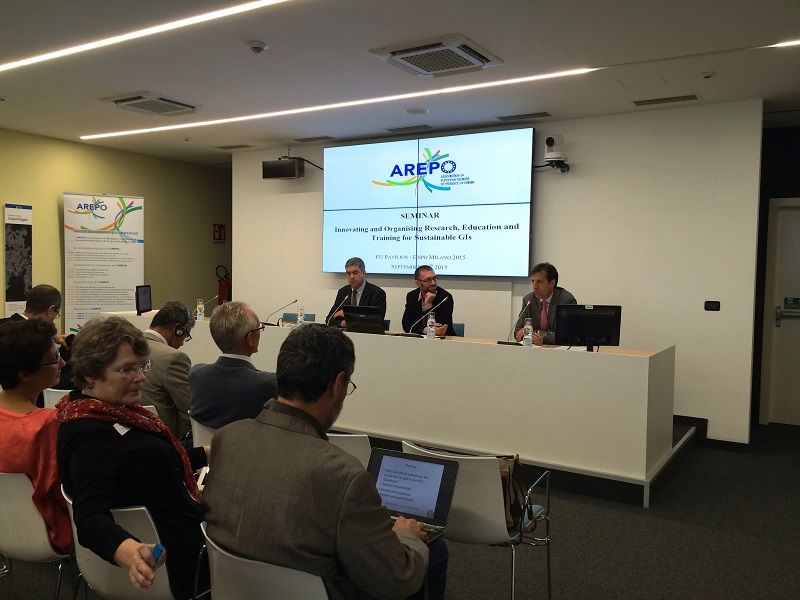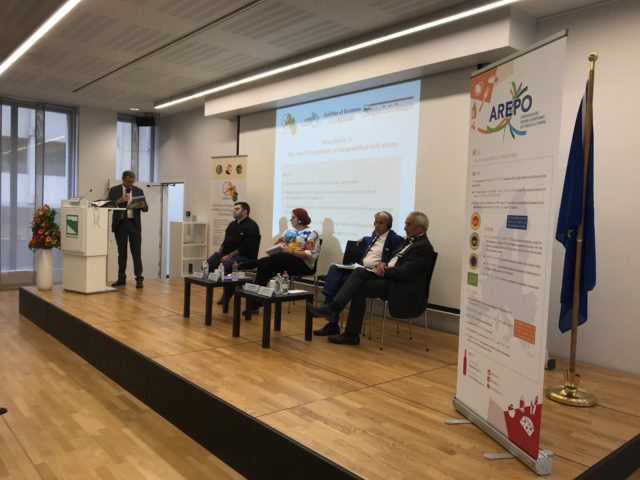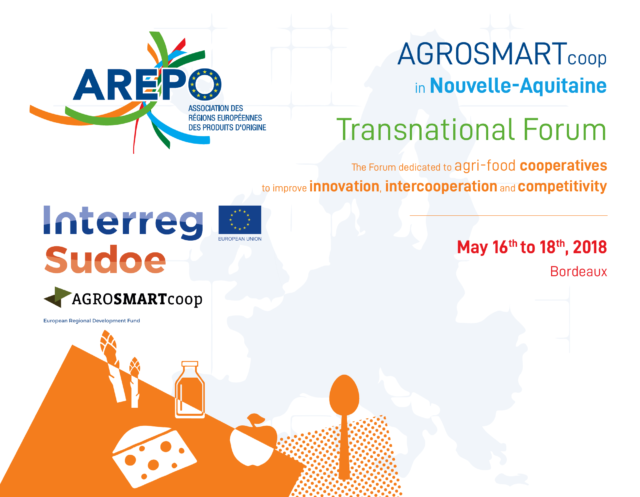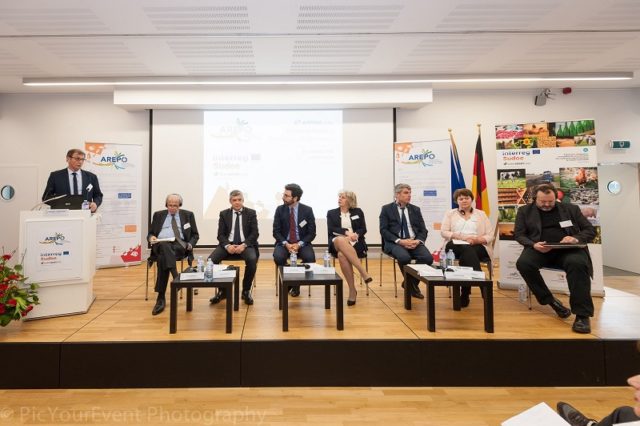
On September 11th 2015, the Association of European Regions for Products of Origin (AREPO) held with numerous partners a high-level seminar in the European Union (EU) Pavilion at Expo Milano. Entitled “Innovating and Organising Research, Education and Training for Sustainable Geographical Indications (GIs)”, the seminar underlined the need for support and funding at the European level on research, education and training on GIs.
20 high-level speakers from the research, education and training sectors participated to the seminar and exchanged experiences and practices with more than 80 stakeholders, to define future priorities related to GIs. A Geographical Indication is not a simple product. It’s a complex system including a number of actors and resources mobilized around a product. That is why this sector requires the development of interdisciplinary research, education and training including contributions from agronomy to economy, from sociology, anthropology and geography to law, from political science to technology.
“We need to take the word sustainable seriously. We must give the right attention to the knowledge transmission process” stated François Casabianca, senior researcher at INRA Corte, introducing the seminar as key-note speaker.
Past research has been focused on some critical points of GIs systems, but many aspects have yet to be investigated in order to face problems and challenges connected with the development of sustainable GIs. Furthermore specific knowledge and skills from different stakeholders -local administrations, farm advisors, producers’ associations, enterprises, and researchers- need to be integrated.
The President of AREPO, Vincent Labarthe, pointed out that “research is essential to understand GIs systems, to create appropriate tools for their sustainability and development, and to discover innovative techniques. Education transmits knowledge to youth, creating the skills of future managers and policy makers. Trainings update and strengthen the skills of professionals, disseminating new knowledge and innovations”. Thus, support from the EU for research and education on GIs would contribute both to strengthen the European quality policy and to achieve the objectives of the Common Agricultural Policy (CAP).
Following the seminar, AREPO will continue to work with its partners from the research, education and training sectors in order to present to the European Commission a visions for a white book on these issues.






